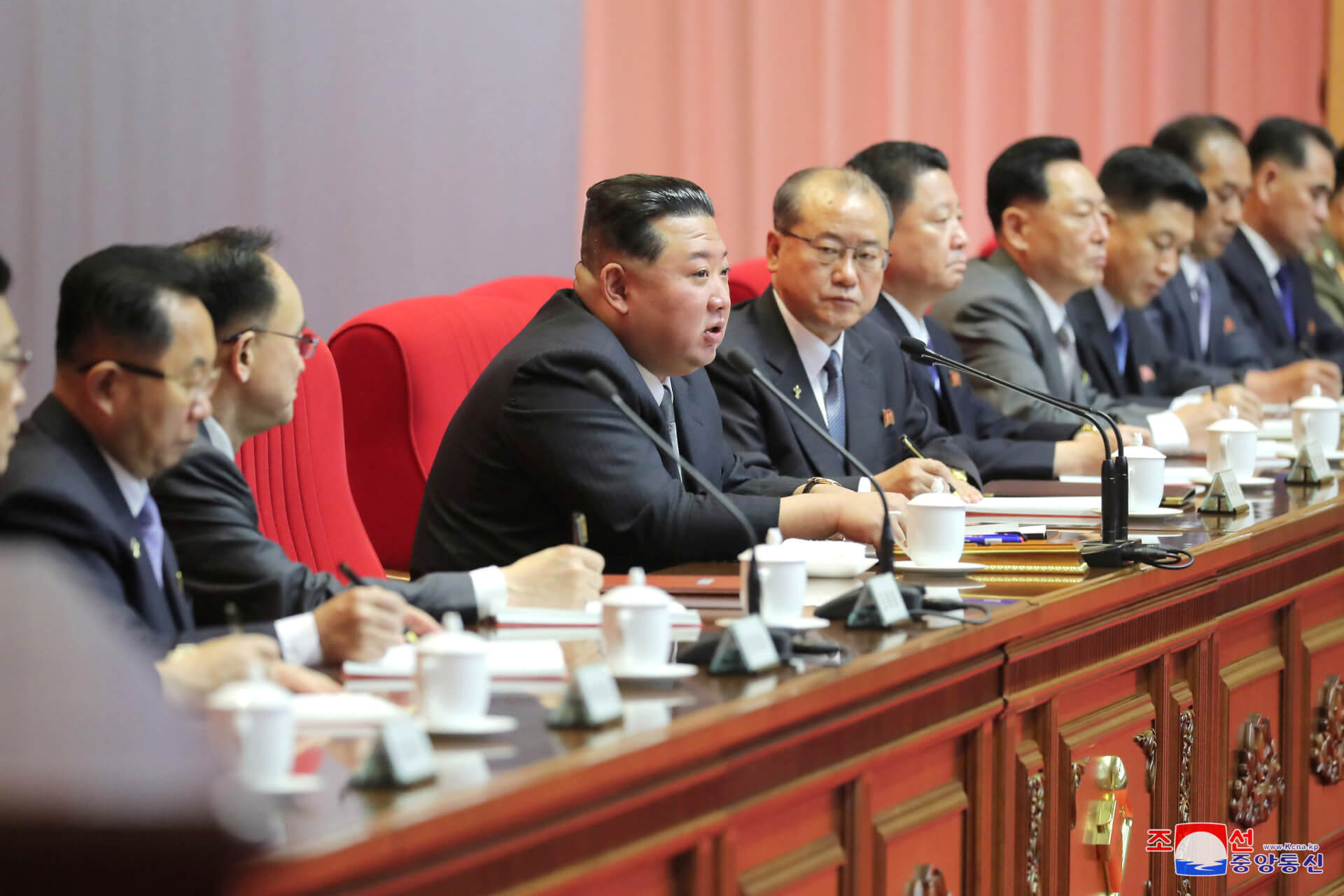North Korea’s Supreme Leader Kim Jong-un unveiled new military goals for the upcoming year, hinting at another year of continued missile tests.
Pyongyang’s state mouth-piece, the Korean Central News Agency (KCNA), reported that on the second day of the Sixth Enlarged Plenary Meeting of the 8th Central Committee, Kim “analysed and assessed” the “new challengeable [sic] situation created in the Korean peninsula and the international political situation.”
Referring to a regional threat, Kim urged members of his ruling Worker Party of Korea (WPK) to “struggle against the enemy” and defend national sovereignty “under the present circumstances.”
North Korean state media say Kim Jong Un attended the first day of a major ruling party meeting. Kim is expected to deliver his year-end address there later this week. pic.twitter.com/p9Egwei87y
— William Gallo (@GalloVOA) December 26, 2022
To tackle “various political upheavals,” the leader specified “the direction of the struggle against the enemy” and also laid out “new core goals” for strengthening national self-defence capabilities.
Hinting that the Kim administration will continue its string of frequent missile tests even next year, the news agency added that Kim outlined “new key goals for bolstering up the self-reliant defence capability” that his government will pursue in 2023 “under the multilaterally changing situation.”
Although it gave no details of the tests or military build-up, the statement indicated that tensions in the region will continue to be a common feature even during the course of the next year.
North Korean leader Kim Jong Un presented his goals during party meeting, the primary goal will be to further bolster his country’s military. - state media reported. pic.twitter.com/iR3CVeu0cV
— Geopolitics.wiki (@GeopoliticsW) December 28, 2022
North Korea’s ICBM launch on 18 November was its eighth in 2022, and formed part of more than 60 ballistic missile launches it carried out this year. In total, it has conducted 18 ICBM launches in its history.
In fact, in September, the rogue regime passed a law that affirms its right to use pre-emptive nuclear strikes and makes the nuclear status “irreversible.”
While Pyongyang claims that its consistent tests are simply a response to the United State’s military presence in the region, it has triggered other regional countries to accelerate their own military build-up.
Kim also said in a letter to the congress that North Korean children must "endlessly hate the enemies of the revolution and have the heart to fight the bastards." His letter was read aloud at the event, according to state media.
— NK NEWS (@nknewsorg) December 27, 2022
More from @nknewsorg soon
South Korean President Yoon Suk-yeol on Tuesday called for strengthening the country’s air defences and including high-tech stealth drones after its military apologised for failing to shoot down North Korean drones that successfully escaped South Korean radars.
Similarly, Japanese Prime Minister Fumio Kishida pledged in November to strengthen the country’s naval and military capabilities within five years, noting that the “security environment in the East and South China seas, especially around Japan,” is becoming “increasingly more severe.”

